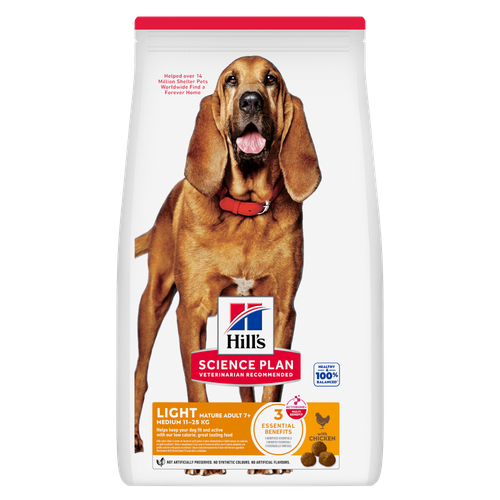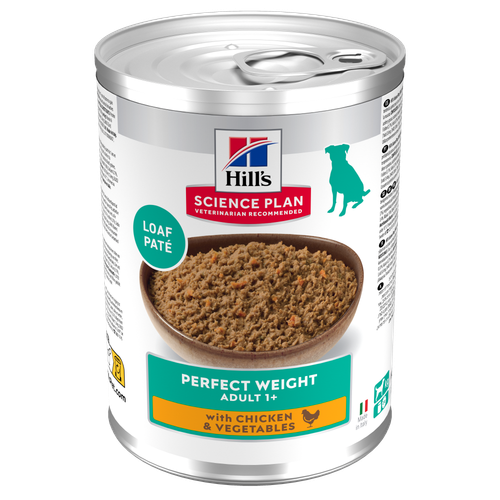Weight management for dogs
Weight management for dogs
Is your dog overweight? Don’t take it lightly!
Many of us don’t realise that our dog is overweight because the weight gain often happens gradually. Even though it’s happening right in front of you, a little extra weight here and there can add up to some serious health issues.
Being as little as 10% overweight can greatly increase the risks associated with serious health conditions which can impact your dog's quality of life
Your dog may look just fine to you, but the ideal weight varies by size and breed. Your veterinarian will be able to tell you if your dog is overweight.
Signs your pet is emaciated:
The ribs, spine and hip bones are visible from a distance, and there is no discernible body fat.
Signs your pet is healthy weight:
The ribs can be easily felt without excess fat, and you can see the waist behind the ribs from above. You can also see what we call an 'abdominal tuck' from the side, where your dogs shape reduces significantly in the 'tuck' behind the ribs. Ask your Veteinary Nurse to show you.
Signs your pet is overweight:
You can’t feel yur pet's ribs because they are covered in fat. Large fat deposits are over the neck, chest, spine and base of tail. Both waist and abdominal tuck are absent. Ask your Veterinary Nurse to show you.
See what those foods really mean for your pet
As well as feeding your dog the correct nutrition, promoting regular exercise will help maintain a healthy weight. Here are a few workout tips and exercises you and your dog can do together.
- Toys and Games
- Walking or Jogging
Toys and games
Who says exercise has to be a hassle? Your dog can also get a dose of exercise by playing a quick game of fetch or tug-of-war. If you want to mix things up, try building an obstacle course or teaching them a new trick.


Walking or jogging
Even a casual walk through nature every day can help your dog burn calories and stimulate their senses. Mix in some jogging or running to increase your pet’s heart rate.



Picking the right dog food for weight management
The food your dog eats directly affects their overall health and wellbeing. Balanced nutrition is an essential part of an active, healthy lifestyle. Too many snacks can cause weight gain.
Ask your vet about Hill’s weight management foods to help your dog maintain a lean body condition as well as a healthy & active lifestyle.
Picking the right dog food for weight management
The food your dog eats directly affects their overall health and wellbeing. Balanced nutrition is an essential part of an active, healthy lifestyle. Too many snacks can cause weight gain.
Ask your vet about Hill’s weight management foods to help your dog maintain a lean body condition as well as a healthy & active lifestyle.


Put your overweight dog on the road to recovery
If your dog is already having trouble with weight problems, there are plenty of things you can do to improve their condition. Ensuring your pet is ahealthy weight is one of the most important things you can do for your pet.




















